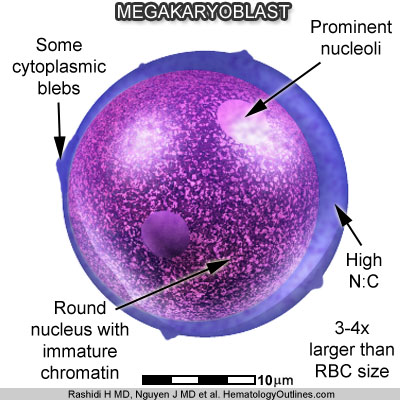
Granulocytes - these are white blood cells that have granules in their cytoplasm. Examples of these are eosinophils, basophils, and neutrophils.
Agranulocytes - these are white blood cells that do not have granules in their cytoplasm. Examples of these are lymphocytes and monocytes.

Sinusoid - These are unique blood vessels that are actually classified as open pore capillaries. They are commonly found in the bone and spleen.

Megakaryoblast - this cell is involved in hematopoiesis. It develops into a promegakaryocyte and then a megakaryocyte.



